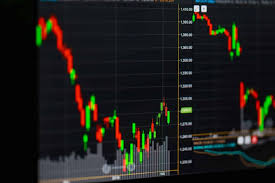
Forex trading, which involves buying and selling currencies, is a popular form of investment and speculation in the financial markets. As globalization progresses and economies around the world become increasingly interconnected, the demand for foreign exchange trading continues to grow. However, choosing the right online broker is essential for successful trading. This article will guide you through the intricacies of Forex trading and highlight important factors to consider when selecting an online broker. For comprehensive insights, you may want to check forex trading online broker India Brokers, which provides valuable information for traders.
Understanding Forex Trading
Forex, or foreign exchange, is the largest financial market in the world, with a daily trading volume exceeding $6 trillion. It operates 24 hours a day, five days a week, allowing traders from all around the world to buy and sell currency pairs. The objective of Forex trading is to profit from the fluctuations in currency values. Traders utilize various strategies and tools to analyze currency price movements and make informed decisions.
Currency Pairs: The Building Blocks of Forex Trading
In Forex trading, currencies are always traded in pairs, where one currency is exchanged for another. The first currency in the pair is called the base currency, while the second is the quote currency. For instance, in the currency pair EUR/USD, the euro is the base currency, and the US dollar is the quote currency. Traders speculate on whether the base currency will strengthen or weaken against the quote currency, aiming to make profits from these movements.
The Role of Online Brokers in Forex Trading
Online brokers act as intermediaries between traders and the Forex market. They provide trading platforms for executing trades and often offer various tools for analysis, education, and market research. Selecting the right broker is crucial, as it can significantly impact your trading experience and profitability.
Choosing the Right Online Broker
When it comes to selecting an online broker for Forex trading, there are several key factors to consider:

1. Regulation and Licensing
Make sure the broker is regulated by a reputable financial authority. Regulatory bodies impose strict standards to ensure the safety and reliability of brokers. Look for brokers that are regulated by institutions such as the Financial Conduct Authority (FCA) in the UK, the Commodity Futures Trading Commission (CFTC) in the USA, or the Australian Securities and Investments Commission (ASIC) in Australia.
2. Trading Platform
The trading platform is the software that allows you to execute trades, analyze markets, and manage your investment portfolio. Ensure that the broker provides a user-friendly platform that suits your trading style. Popular platforms include MetaTrader 4 (MT4), MetaTrader 5 (MT5), and other proprietary platforms offered by brokers.
3. Spreads and Fees
Understanding the cost structure of trading is essential. Most brokers make money through spreads, which is the difference between the bid and ask price. Look for brokers with competitive spreads and low fees to maximize your trading profits. Keep in mind that some brokers may charge additional fees such as withdrawal fees, inactivity fees, or commissions.
4. Leverage Options
Leverage allows you to control a larger position in the market with a smaller amount of capital. While it can amplify gains, it also increases the risk of losses. Check the leverage options offered by the broker and ensure that they align with your risk tolerance and trading strategy.
5. Customer Support

Reliable customer support is vital, especially for new traders. Ensure that the broker provides multiple channels of support such as live chat, email, and phone services. Test their response time and effectiveness before opening a trading account.
6. Educational Resources
Every trader, especially beginners, can benefit from educational resources that help build their understanding of Forex trading. Look for brokers that offer tutorials, webinars, articles, and tools that can enhance your trading knowledge and skills.
Educating Yourself: The Key to Success
Forex trading is not a guaranteed pathway to riches; it requires dedication, practice, and continuous learning. Before diving into live trades, consider using a demo account to practice trading strategies without risking real capital. Many brokers offer demo accounts that allow you to familiarize yourself with the trading platform and refine your skills.
Risk Management and Trading Psychology
Effective risk management is essential in Forex trading to protect your capital and minimize losses. Consider implementing strategies such as setting stop-loss and take-profit orders to manage risk actively. Additionally, understanding trading psychology is vital; feelings of greed, fear, and impatience can lead to poor decision-making. Developing a disciplined approach and sticking to your trading plan can help mitigate these emotional pitfalls.
Conclusion
Forex trading can be a lucrative endeavor when approached with the right knowledge, tools, and strategies. Choosing a reliable online broker is essential for navigating this complex market and achieving your financial goals. By considering factors such as regulation, trading platforms, costs, and educational resources, you can make an informed decision that aligns with your trading objectives. Remember to prioritize risk management and continuous learning, as these are key components of successful Forex trading.